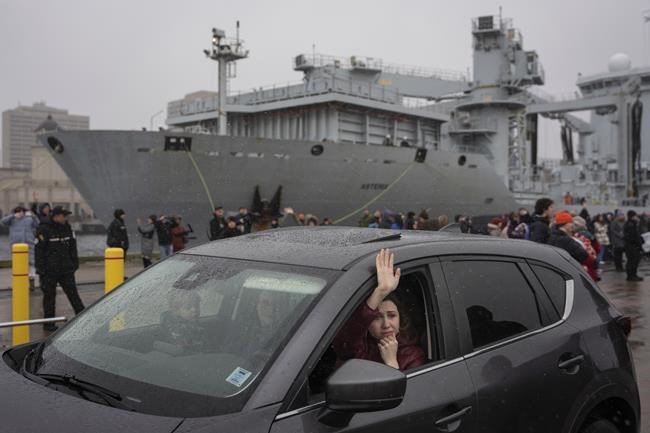HALIFAX — A Royal Canadian Navy frigate departed Halifax today as part of the federal government's wider strategy of boosting its presence in the Indo-Pacific region.
HMCS Montréal steamed out of Halifax to become the first of three frigates to deploy in the region over a 12-month period, with the support of the naval supply vessel Asterix.
Defence Minister Anita Anand has touted the deployment of three — rather than two — frigates to the region as part of a wider strategy to demonstrate a bigger Canadian presence in the region, particularly in the Indian Ocean.
A news release says the ship and its on-board Cyclone helicopter detachment will work closely with allies in naval exercises during the deployment.Â
Anand says the frigate will also be part of Canada’s contribution to multinational efforts to monitor sanctions imposed on North Korea by the United Nations Security Council.
The sanctions are designed to pressure North Korea to abandon its weapons of mass destruction programs.Â
The Halifax-class frigates carry anti-submarine warfare and anti-surface warfare weapons and sensors, along with anti-air warfare defences.Â
Last fall, Ottawa announced it was earmarking $2.3 billion to form closer ties with countries that span Pakistan to Japan.
That included a half-billion dollars to deploy a third naval frigate to the area and boost collaboration on both cybersecurity and military training with allies.
Anand has said working with countries such as Indonesia, Malaysia, the Philippines, Vietnam and Singapore represents a shift that goes beyond a naval presence in the region as Canada seeks to boost economic relationships with those nations.
However, the Indo-Pacific strategy did not include a registry of foreign agents. Some intelligence experts have been calling on Canada to follow the U.S. and Australia in compelling countries to register anyone engaging in domestic political activity.
The Liberals first promised the strategy in 2015 and had initially planned to launch it in late 2020.
It was announced after a period of rocky diplomatic relations with China and included a comment that, "China is an increasingly disruptive global power."Â
This report by The Canadian Press was first published March 26, 2023.
The Canadian Press




